Why the 2019 Tonys Will Be an Emotional Full-Circle Moment for Torch Song Producer Richie Jackson

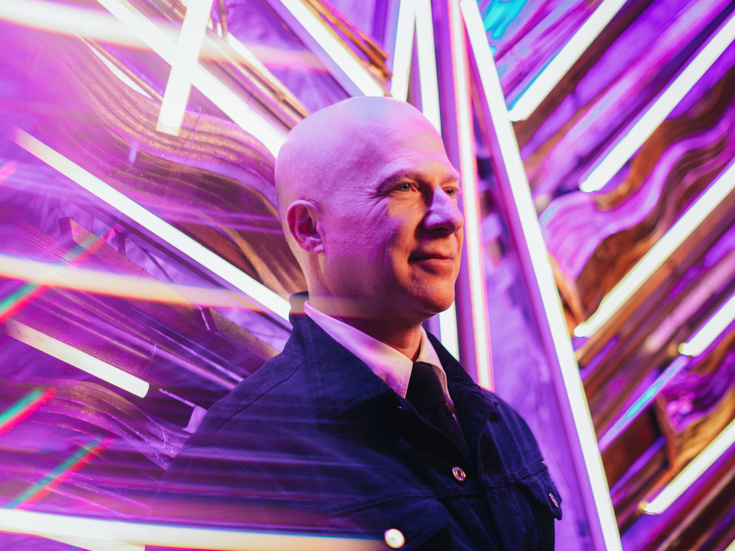
(Photo by Emilio Madrid-Kuser for Broadway.com)
One fateful day in 1982, early in the original triumphant three-year run of Harvey Fierstein’s Torch Song Trilogy, Carol Jackson of Bellmore, Long Island came into the city to catch a performance with a friend. The acclaimed new Broadway play was about a gay man in New York City searching for love, building a family and navigating a troubled with his intolerant “ma.”
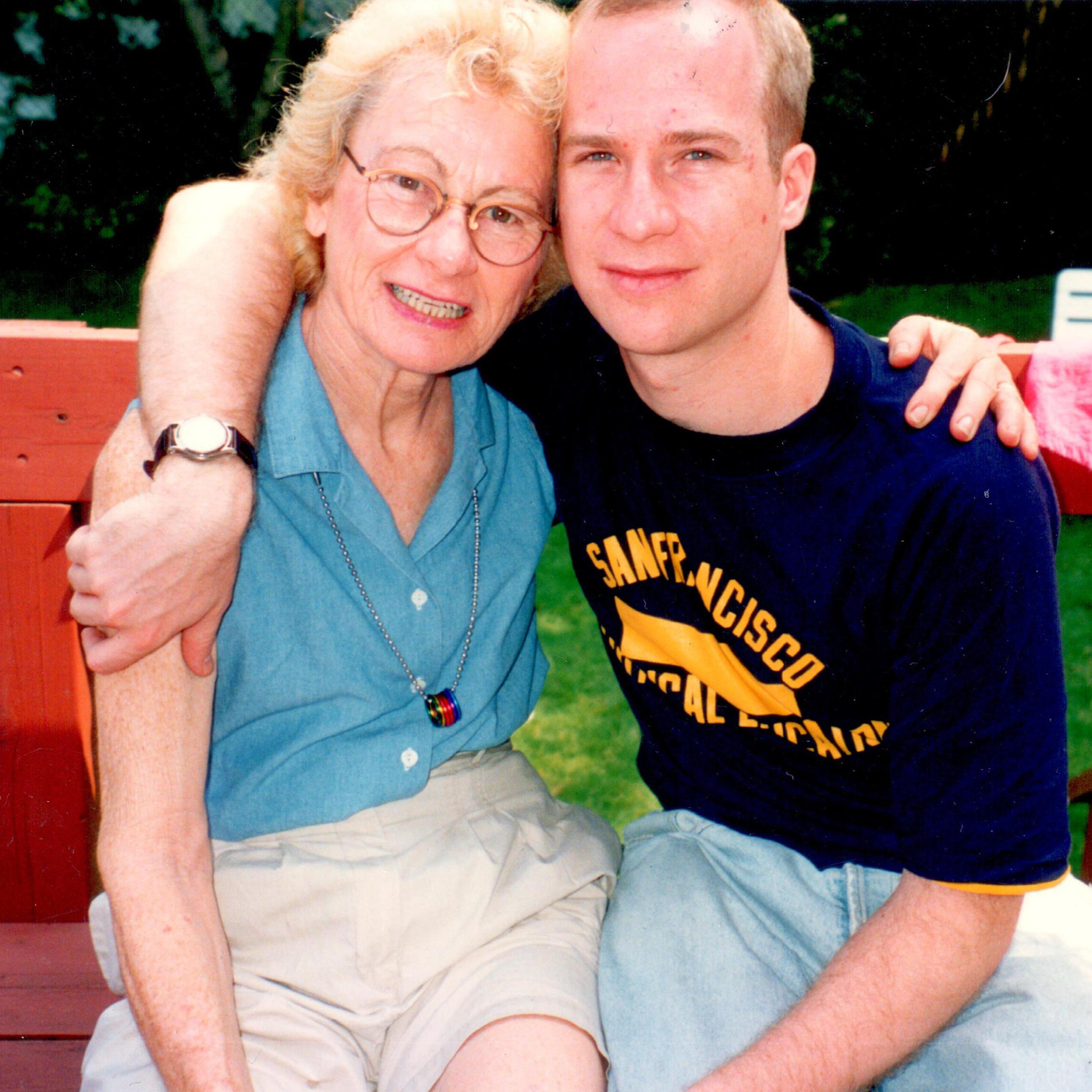
As Mrs. Jackson walked out of the Little Theatre on West 44th Street, tremendously moved by the performance, she stopped at the box office. She wanted to come back and bring her teenage son Richie with her, so she bought tickets for a future date.
“I knew I was gay,” Richie Jackson says now. “But I hadn’t told her. She recognized immediately that Torch Song Trilogy was her conversation starter. It was basically her permission slip to me to say, ‘Go live your life.’”
After the curtain fell on their mother-son theater date, Carol took Richie to a nice dinner. “She sat me down,” he remembers. “And said, ‘If you ever came home and said you were gay, I’d never react like the mother in that play.’”
“What’s extraordinary is that she knew no gay people—had no gay friends, no gay co-workers,” he adds. “In 1982, nobody’s talking to my mother in Long Island about gay people.”
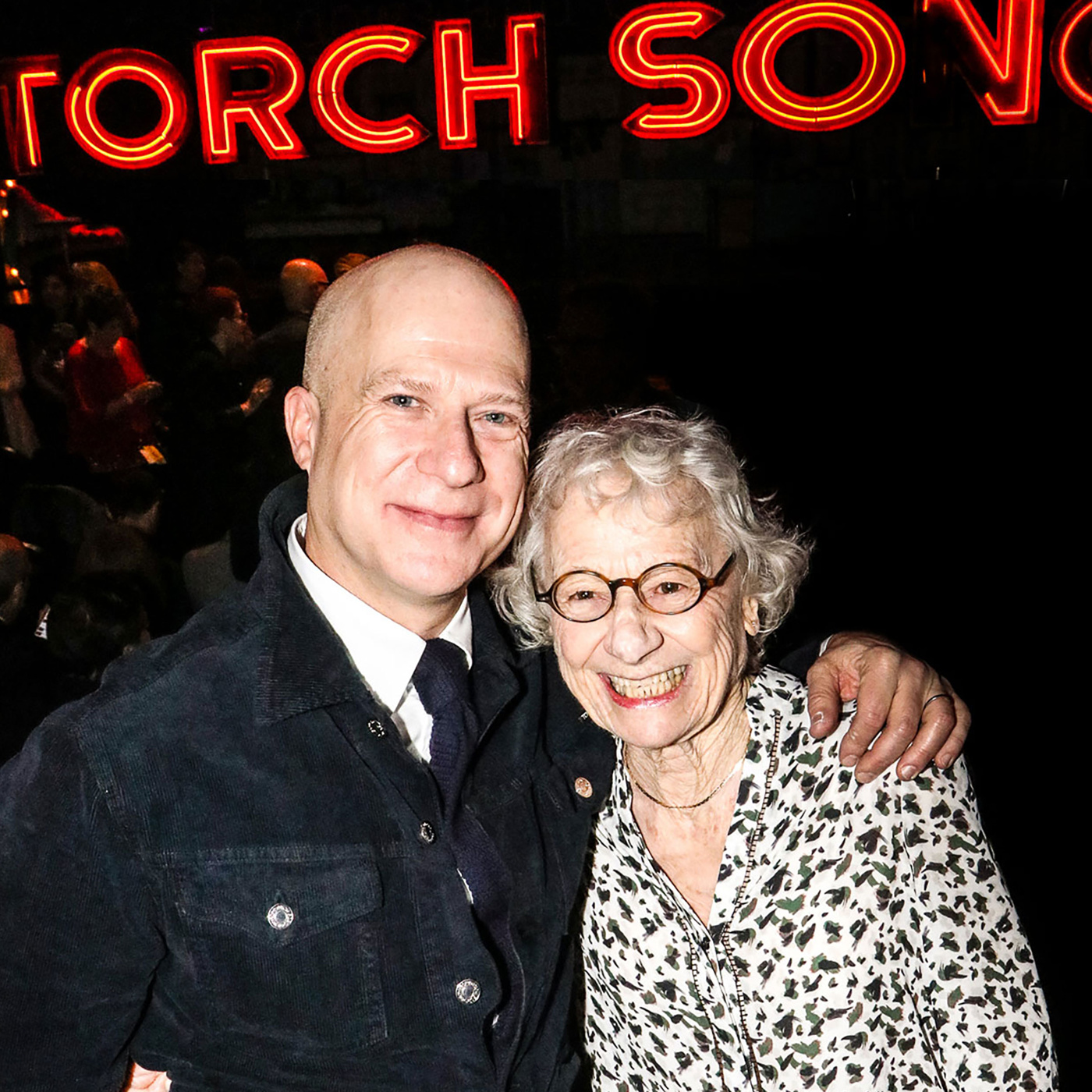
(Photo courtesy of Richie Jackson)
Now 85 years old, Carol Jackson found herself back at the very same theater with her son once again on November 1, 2018. Thirty-six years had passed. The Little Theatre is now the Hayes Theatre. Torch Song Trilogy was reworked and just called Torch Song. And her teenage boy is now an out-and-proud Broadway producer with a husband and teenage son of his own, opening Fierstein’s gay classic in a critically acclaimed new staging.
Nominated for a 2019 Tony Award for producing Torch Song in the category of Best Revival of a Play, Richie Jackson speaks passionately about the show that changed his life. He also became friends with Fierstein, who is also honored with the nomination for the fresh take on his career-making classic that showed audiences gay men can build their own families and even take on fatherhood.
After moving to New York City to attend NYU's Tisch School of the Arts, Jackson attended Torch Song Trilogy again with friends and wrote a fan letter to Fierstein, telling him the story about his mother. On April 16, 1984, Fierstein dropped a postcard in the mail writing him back, saying, “I’m so happy for you and your mother” and “Go slow and easy in life—there’s a right time for everything.”
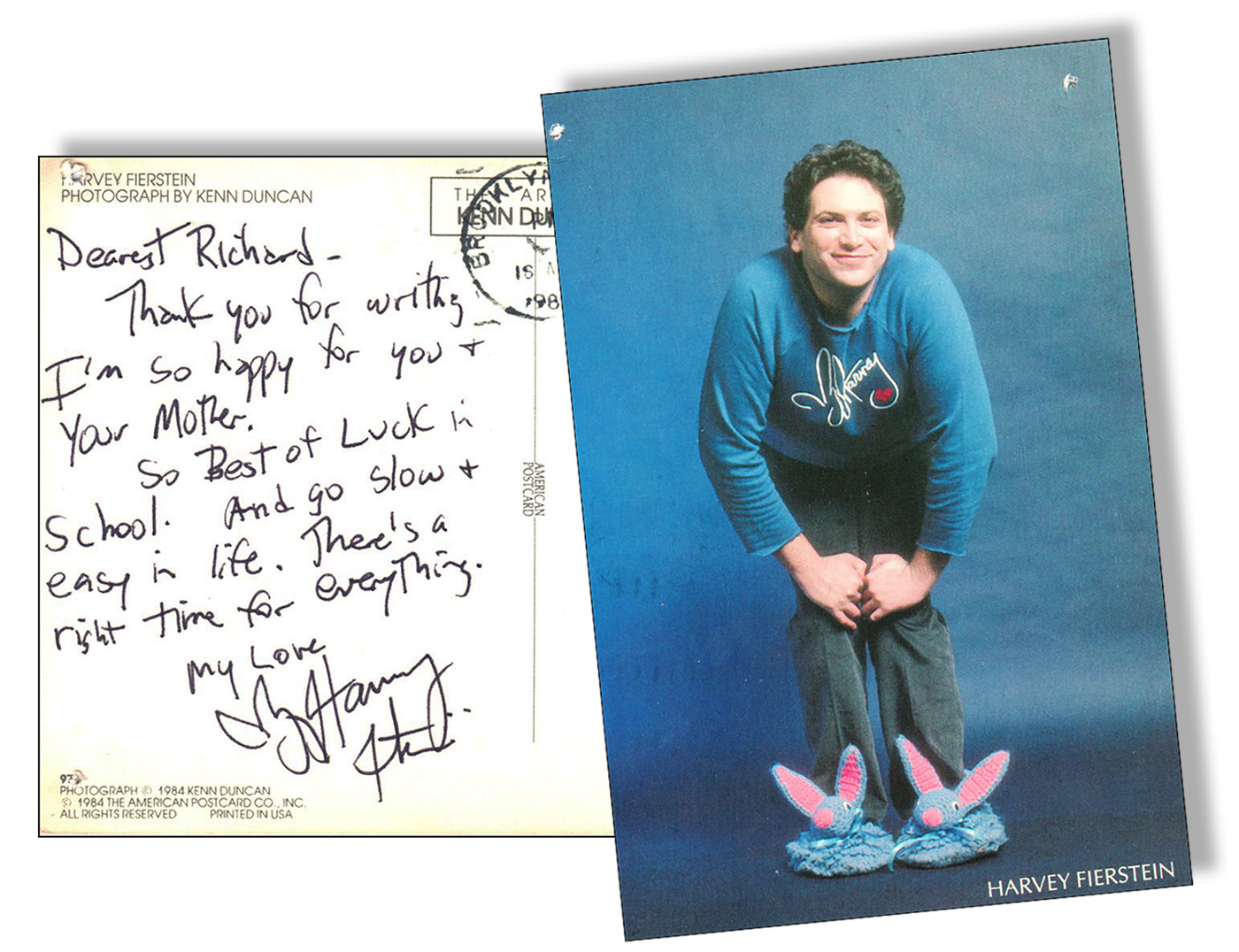
The now close friends finally met after Jackson secured an internship with Torch Song Trilogy producer John Glines, who arranged a meeting. “And one day,” he remembers. “I’m sitting in my dorm room and my phone rings, and I hear Harvey’s voice. He said, ‘I’m doing a new play at La MaMa. Do you want to be my assistant?”

(Photos courtesy of Richie Jackson)
The show was Safe Sex, another trilogy of Fierstein plays, that briefly gave Jackson a taste of Broadway during its month-long run at the Lyceum Theatre in 1987. “I would sit in the audience and listen to the director, who would whisper me notes for Harvey,” Jackson explains. “And I would write them down for him.” So, what was the hardest thing about being a liaison between Fierstein and his director? Jackson laughs. “Well, he’s wickedly smart,” he says. “And he’s usually often right. So, that’s not the easiest thing!”
Jackson went on to become a successful theatrical agent, handling Fierstein and other big names like Edie Falco as head of Innovative Artists Talent and Literary Agency. He jumped frommanaging talent to producing of TV’s Nurse Jackie (starring Falco) as well as Broadway’s A Catered Affair (also by Fierstein) and John Cameron Mitchell’s film Shortbus.
But it’s Torch Song and Fierstein that have provided Jackson’s life story with poetry and poignancy. “What’s so moving for me is that I am part of the first generation of gay men that grew up in a world with Harvey’s voice in it,” he says. “Everybody’s talking about privilege lately. My privilege was that I didn’t know a world without Harvey Fierstein. He helped frame for me what it meant to be a gay person and what it meant to be a gay artist in theater. My goals in theater were always to do theater that meant something to people and directly affected the lives of the people in the audience at the time they were seeing it.”
Bringing Torch Song back to Broadway, with acclaimed performances by Michael Urie and Mercedes Ruehl, afforded Jackson the opportunity to share it with others. “We met with group sales agents before we started,” he remembers. “And I said, ‘Look, I would love you to book as many groups as you can, but please look for the young me. Look for those kids who need to see themselves onstage. And look for my mom and the parents who need to talk to their kids.’ And we got them. I remember one young man tweeted, ‘I just saw the matinee of Torch Song, and it empowered me to go right to my grandmother and come out to her.’”
“The importance of theater is not theoretical to me,” Jackson continues. “It changed my life. If you had asked me back in 1982, ‘Do you think you’ll be married and have children?’ I would have said, ‘Yes. Harvey Fierstein showed me I could.’ Now I’m married and have two children. I never doubted it would happen because Harvey showed me it would happen.”
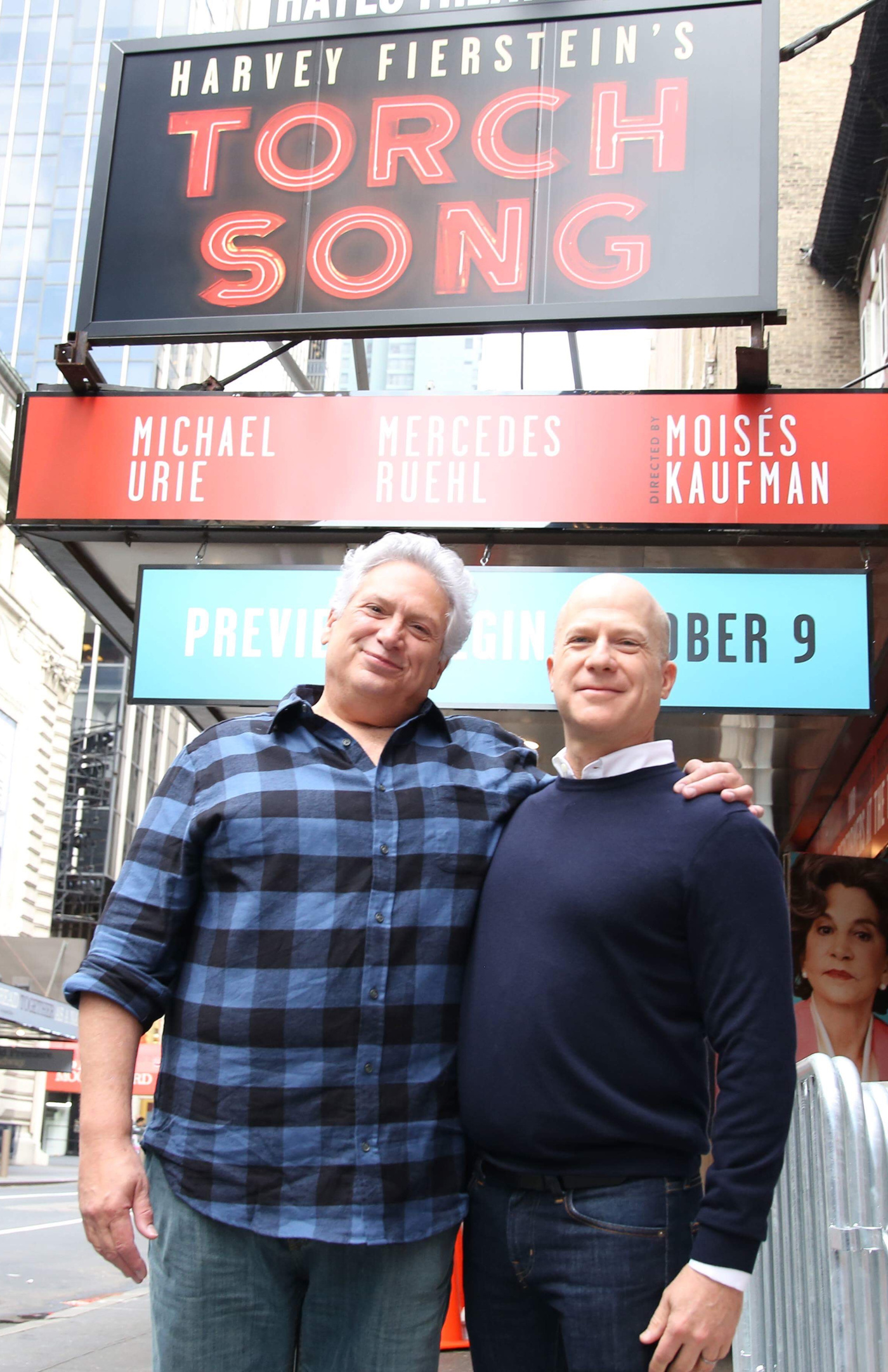
In 2012, Jackson married Broadway mogul Jordan Roth, president of Jujamcyn Theaters and producer of hits like Hadestown, Mean Girls, King Kong and the upcoming Moulin Rouge! and Jagged Little Pill. Together they raise sons Jackson Foo Wong, who just turned 19, and Levi, who will turn three in July, in New York City.
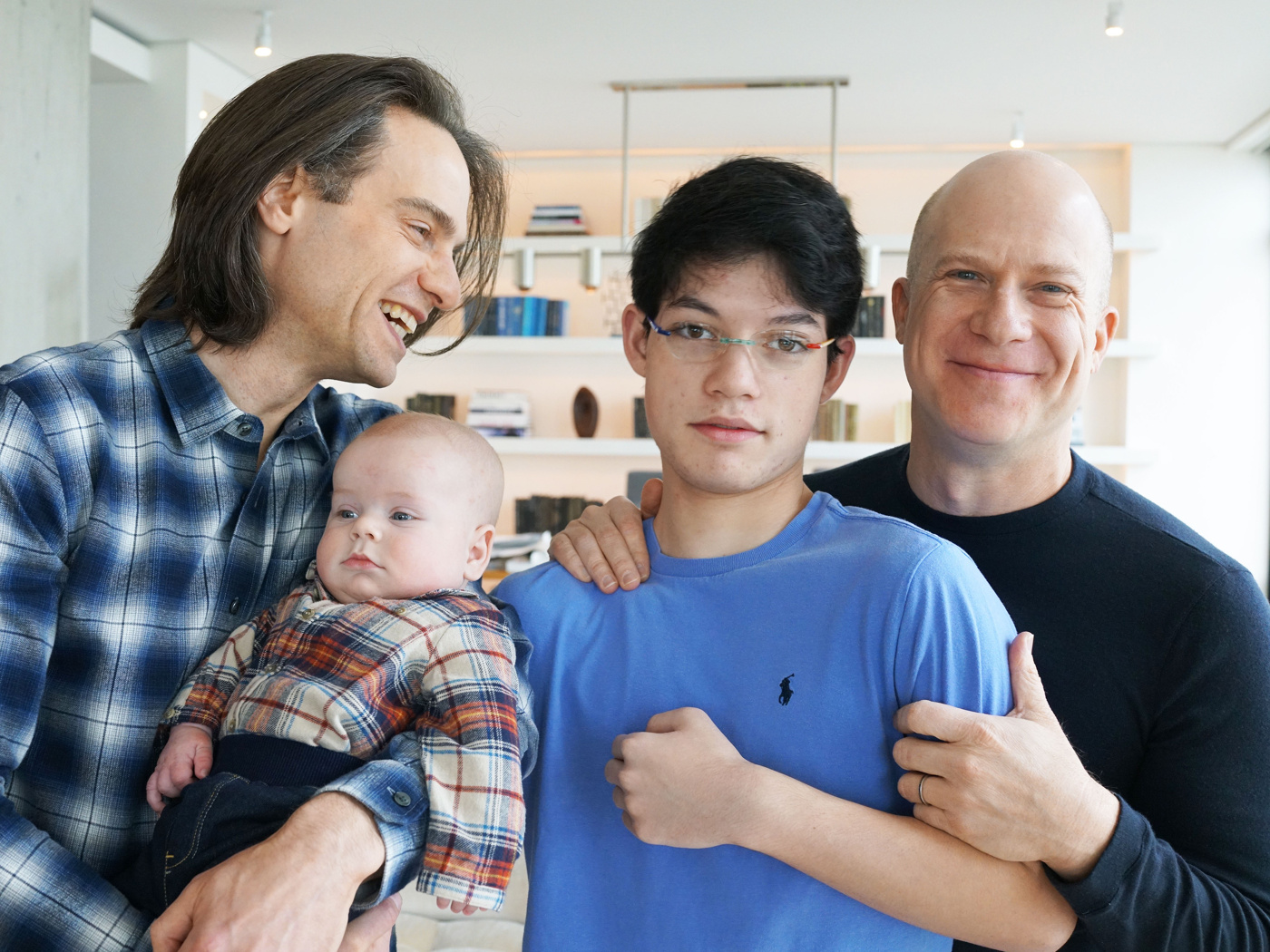
Tony night is always a special one for Jackson and Roth, who first met cute during a commercial break at the Tony Awards ceremony in 2003. “It’s our anniversary,” he says. “That’s always my focus—the night is always going to be great for that fact alone.”
All eyes will be on the couple at this year’s Tony Awards. With stunning red carpet turns, Roth has become a fashion icon of late—his Met Gala look was even discussed in the pages of Vogue this year. Jackson calls himself “fashion-adjacent” to Roth’s high-style fun: “My entire role in Jordan’s fashion life is to enjoy his enjoyment of it. I try to stay in my lane!”
One thing is for sure: it will be a night to remember. “I was scooping Haagen-Dazs in Long Island when I heard Torch Song Trilogy won the Tony for Best Play in 1983. To go from that to sitting at the Tonys this year with Harvey as nominees together? It’s a celebration of his play, a celebration of what meeting Jordan that night brought to me, a celebration of my mother’s gesture… It’s just thrilling.”
Watch clips from Torch Song below!